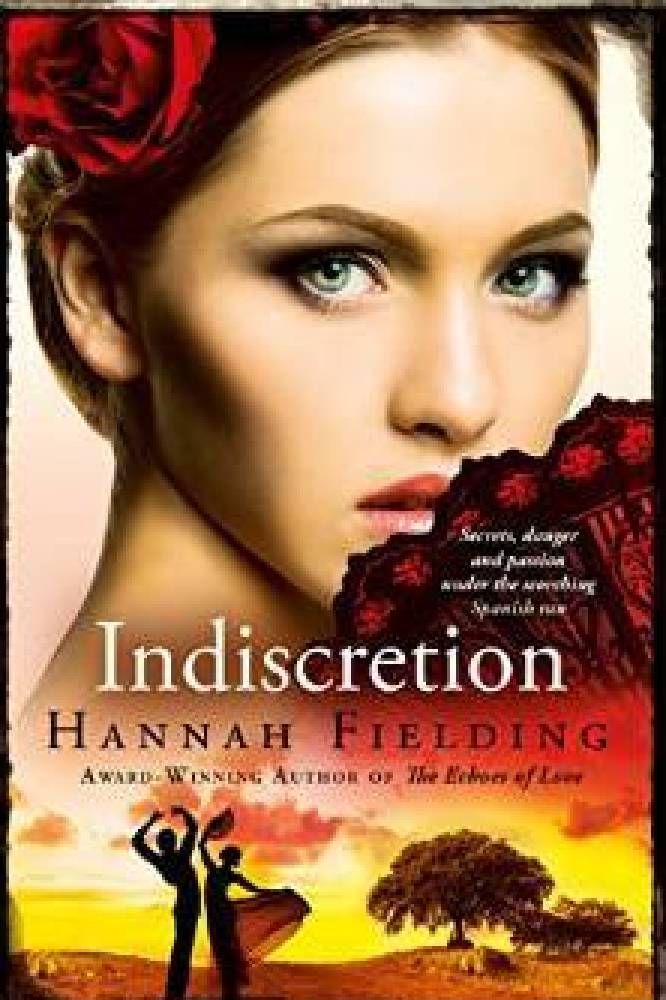'Write about what you know' is a common piece of advice given to writers, and I agree with it. The more experience you bring to bear in your fiction, the more genuine and realistic the story is. So when you are a writer yourself, it makes perfect sense to create a heroine you understand perfectly: to create a heroine who is a writer. That's exactly what I did in my latest novel, Indiscretion. Here are my top tips for shaping that writer-heroine:

Indiscretion
Pile on the pressure. Although you can write a heroine who is simply writing occasionally for pleasure, I think the characterisation will be deeper and have more impact if the writer has to write, often and seriously. So I suggest setting a deadline that the character must meet; make it imperative that she write and write and write. In Indiscretion, my heroine, Alexandra, has published two novels thus far and has achieved great success in her career. Now, her publisher anxiously awaits her third novel. Pressure!
Take her to places that will inspire her muse. No writer can create in a bubble; we rely heavily on outside inspiration. Setting is very important to writers, so have that heroine visit the most beautiful, most inspirational places in the vicinity - and also those that really challenge her preconceptions and views, and force her out of her comfort zone. For example, an important scene in Indiscretion takes place at a corrida, a bullfight. This is an entirely new experience for Alexandra, and one that simultaneously interests and unsettles her.
Stir strong emotions in her. I have never met a writer (and I have met many!) who was not an emotional person. Love, anguish, joy, thrill, bliss, fear - we feel so keenly, and our writing is a means to cathartically express such emotions. So for your writer-heroine to be in the best place to write and to have plenty of inspiration, she needs to be awash with feelings.
Throw writer's block in her path. What writer is never plagued by obstacles? For realism, sometimes the writer has to struggle. All the better if her writing flow is interrupted by her personal life - the emotions it creates. Perhaps the block in her writing is in fact a block in her life, and once she surmounts this both her own story and the one she is writing take a new and wonderful turn.
Consider carefully which genre your character writes within. I write romance, and my heroine also writes romance because it fits her characterisation in the book: passionate and full of emotion. But if I wanted to bring out a different element in Alexandra, I could have chosen a different genre for her writing. Biography, for example, or perhaps literary fiction, to put across a more serious air. Genre says a lot about a writer!
Allow her to escape into her writing. Alexandra lives a stifled life at the start of the book, and she explains: 'I have my writing, and that's my one escape. My sanctuary, if you like.' When you give your heroine such a vehicle for escape, you give her the means to exact change - to explore on the page her limitations and how she may break them, and in doing so find the wisdom and courage to act in her own life.
Make her a keen observer. Writers take in everything around them - the sights, the smells, the sounds, the tastes, the textures - and infuse their writing with tiny details gleaned from observations. In Indiscretion, for example, Alexandra takes a train across Spain, and uses the journey as an opportunity to people-watch and to make a mental note of characteristics, so that she might use them in her writing.
Give her classic writing implements. My book is set in the 1950s, pre-laptops, so of course it is easy for me to have Alexandra sitting at a typewriter or handwriting onto paper. But even in the modern era, there's scope for romanticising writing. Just because you sit in the corner of a dim study tapping away on a computer keyboard doesn't mean she has to!
Make your writer a reader too. To write, one must read: it is how we learn our craft, and of course it is essential for research. The writer is to be found with a pen in one hand and a book in the other. In Indiscretion, Alexandra has read many books on the land of her birth, Spain, and her comparison of her learning and real-life experience is an emotional and transformative journey for her.
Give her a writing hideaway. It is not only the act of writing that we writers love, but also the setting for writing: the right to find somewhere beautiful, somewhere cosy, somewhere quiet and secluded, just for us. I have writing spots all over my French and Kent homes - in the houses but also, when the weather permits, in the grounds. In Indiscretion, I wanted to give Alexandra a retreat, so I created a little summerhouse, overgrown with red bougainvillea, to which she can escape the suffocating atmosphere of the hacienda. There, she can lose herself in nature and write freely.
Above all, inject your heroine with your writing self: your strengths and more certainly your weaknesses. Perhaps you will find, at the end of the novel, that you have not only learnt a great deal about your heroine, but also about yourself as an author.

